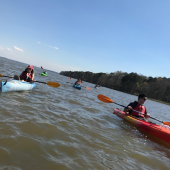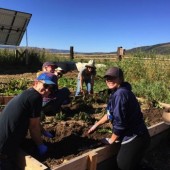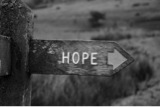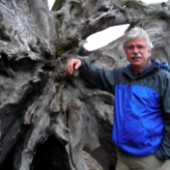Link to the Ecomedia Literacy Table of Contents Lopez et al. Editorial Overview JSE April 2020 Ecomedia Literacy PDF Forward from JSE Editor-in-Chief, Clare Hintz: The Journal of Sustainability Education marks its tenth anniversary year with an issue on Water Literacy (published in March) and this issue, Ecomedia Literacy. From a dream of several Ph.D. […]
Continue Reading
This essay describes a series of interdisciplinary projects addressing environmental issues in Florida where faculty and students from different departments collaborate on complex problems and produce multimedia work aimed at reaching a public audience. Through a series of brief case studies, a model of interdisciplinary experiential education emerges, providing a pathway forward for other faculty to create community engaged projects that have real world impacts.
Continue ReadingThis editorial overview provides an introduction to this special Journal of Sustainability (JSE) issue devoted to water and climate change, which is being released during United Nations World Water Day 2020. The article contextualizes some of the water security risks that are exacerbated by climate change, such as increasing floods and droughts. This piece further provides a brief overview of the articles in the special water and climate issue of the JSE.
Continue ReadingEditorial overview for the December 2017 General Issue: Curriculum and Change
Continue Reading
Mason JSE May 2017nFuture Casting Issue PDF The human condition can almost be summed up in the observation that, whereas all experiences are of the past, all decisions are about the future…. The image of the future, therefore, is the key to all choice-oriented behavior. The general character and quality of the images […]
Continue ReadingWelcome to the February 2017 General Edition of the Journal of Sustainability Education!
Continue Reading
Abstract: Offers a brief introduction to the Journal of Sustainability Education issue focused on hope and agency, highlighting hope and agency as essential aspects of sustainability education in the Anthropocene.
Continue Reading
Abstract: The concept of hope is rich in context, and working with it from different angles can enhance inner resources. Framing hope as a process offers tools for sustainability educators: subjective exploration, empathy development, critical thinking, and civic engagement.
Continue Reading
Abstract: Development of a sustainable relationship with our natural resources is an imperative for any meaningful quality of life as climate change poses the ultimate test of our adaptability as a species. The consequences of failing to respond will be catastrophic and irrevocable over a millennial time scale. During the environmental century, higher education has an ethical imperative to provide the foundation of a sustainable civilization. Higher education is broadly failing to meet this mandate. Most existing programs in environmental and sustainability science and studies provide inadequate training and lack budgetary autonomy equivalent to established academic units. Although many universities define sustainability through operational activities, the primary purpose of higher education is not operational sustainability — it is teaching, learning, scholarship, and outreach. Developing the capacity for proactive adaptation will require us to examine how we conduct teaching and research across the spectrum of higher education institutions. Education and research for proactive adaptation to rapid ecological change affecting human and natural systems is necessary if we are to produce holistic managers to conserve our natural heritage. All undergraduates should acquire basic ecological and sustainability literacy. Teaching, learning, and scholarship for sustainability must become the highest priority in higher education. Collectively, faculty have the power to implement these reforms.
Continue ReadingEditing this special issue of the Journal of Sustainability Education has been a fascinating journey into how energy education can be improved, and why energy itself may be the key sustainability issue we must tackle this century. As a team, we’ve been motivated from the start by the belief that something is missing–something big–from our […]
Continue ReadingPDF: Jaimie Cloud JSE May 2014 “The test of a first-rate intelligence is the ability to hold two opposing ideas in mind at the same time and still retain the ability to function. One should, for example, be able to see that things are hopeless yet be determined to make them otherwise.” F. Scott Fitzgerald […]
Continue ReadingDear JSE Readers, Welcome to this evocative issue of the Journal of Sustainability Education whose focus is the very apt theme, “Learning and Leading Sustainability.” We say this is apt because we see much mention in the national political dialogue—if we dare to call it dialogue—about the importance of education to the future of the […]
Continue ReadingMarch 28, 2011 Dear JSE Readers, As we enter into our second year, I continue to be moved, and even overwhelmed, by the level of interest in the future of humanity….and how that future can be made more sustainable… and how education can contribute to that process. I am every day made more humble by […]
Continue ReadingMay 10, 2010 Dear New JSE Readers, And new you must all be as we launch our inaugural edition of the Journal of Sustainability Education (JSE, as we’ve become better known). Our hope is that what you find here will provide, as guest editor Dan Garvey puts it, a guide to how we can teach […]
Continue Reading